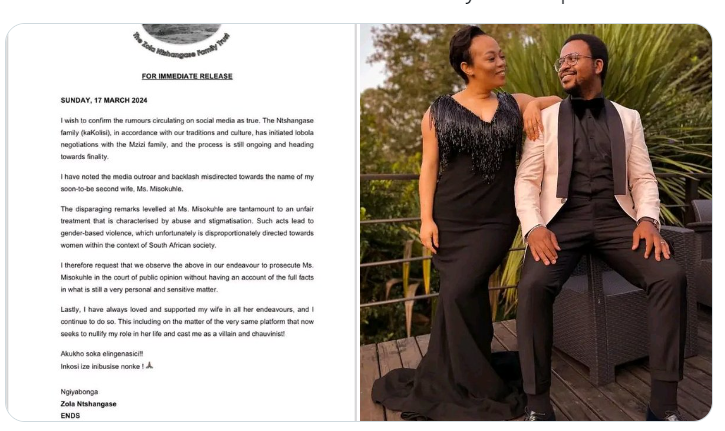Looking to save on tuition costs while transferring to Western Michigan University? Wondering how you can secure scholarships to support your academic journey? Discover valuable insights on Western Michigan University transfer scholarships in this comprehensive guide. Uncover the opportunities available, eligibility criteria, and tips to enhance your chances of receiving financial aid. Don’t miss out on the chance to lessen the financial burden of pursuing higher education at WMU. Let’s delve into the world of transfer scholarships at Western Michigan University and pave the way for a brighter academic future.
Understanding Western Michigan University Transfer Scholarships
Eligibility Criteria
When applying for transfer scholarships, it’s crucial to review the specific eligibility requirements. Each scholarship opportunity has distinct criteria. Make sure you fulfill all conditions before submitting your application. Understand the diverse eligibility criteria set for different scholarships.
Scholarship Amounts
Explore the range of scholarship amounts offered for transfer scholarships. Different scholarships come with varying monetary values. Get acquainted with the specific value associated with each scholarship opportunity.
Application Process
To secure a transfer scholarship, follow the step-by-step process outlined for successful applications. Be aware of the application requirements unique to each scholarship program. Familiarize yourself with the application procedures for different scholarships.
Types of Transfer Scholarships
Community College Awards
Scholars Award Details
Scholars Award is a prestigious program at Western Michigan University offering significant financial assistance. This award aims to support high-achieving transfer students from community colleges. Recipients of this scholarship can benefit from substantial tuition coverage and additional perks. The Scholars Award provides financial stability for deserving students pursuing higher education.
Phi Theta Kappa Alumni
Phi Theta Kappa alumni have access to exclusive opportunities at WMU. These individuals can leverage specialized scholarships tailored to their academic achievements. The benefits for Phi Theta Kappa alumni include dedicated support services and unique networking prospects. WMU values the accomplishments of Phi Theta Kappa members, offering them enhanced scholarship options.
Additional Opportunities
- Explore other scholarship opportunities beyond the main ones mentioned.
- Discover additional avenues for securing financial aid.
- Learn about more scholarship options available.
Community College Competitive Edge
Eligibility for Consideration
To be considered for Western Michigan University transfer scholarships, students must meet specific eligibility criteria. These criteria typically include maintaining a minimum GPA, demonstrating financial need, and being enrolled full-time at a community college. Ensure that you fulfill these requirements to increase your chances of receiving a scholarship. Check the university’s website for detailed information on the eligibility criteria for various scholarship opportunities.
Benefits and Advantages
Receiving transfer scholarships at WMU comes with numerous benefits. Not only do these scholarships help alleviate the financial burden of higher education, but they also recognize and reward academic achievement. As a scholarship recipient, you may have access to exclusive resources, such as mentorship programs and networking opportunities. Understanding the perks associated with receiving scholarships can motivate you to strive for academic excellence and stand out among your peers.
Application Essentials
Steps to Apply
Begin by reviewing the specific requirements for each scholarship available at Western Michigan University. Next, gather all the necessary documents, such as transcripts and recommendation letters. Submit your application through the university’s online portal within the stipulated deadline. Ensure accuracy in filling out all required fields to avoid any delays in the processing of your application.
Important Notes
Be mindful of the unique criteria for each scholarship, as they may vary significantly. Double-check all application deadlines to prevent missing out on valuable opportunities. Stay informed about any additional documents or essays that might be needed for certain scholarships. Familiarize yourself with the selection process, including potential interviews or further evaluations.
Financial Aid Overview
Cost of Attendance
Tuition and Fees
At Western Michigan University (WMU), tuition costs vary depending on the student’s residency status. In-state students typically pay around $12,000 per year for tuition, while out-of-state students may incur costs closer to $30,000 annually. Students should budget for fees such as technology fees, health insurance, and course-specific charges.
- Pros: Transparent breakdown of costs.
- Cons: Higher tuition fees for out-of-state students.
Room and Board Costs
When considering attending WMU, it’s crucial to account for room and board expenses. On-campus housing options range from traditional residence halls to apartment-style living, with prices varying accordingly. Moreover, meal plans are available for students living on campus, adding to the overall cost of attendance.
- Traditional residence halls offer a communal living experience.
- Apartment-style living provides more independence but at a higher cost.
Residency Requirements
Familiarize yourself with residency requirements at WMU.
To qualify for in-state tuition rates at WMU, students must meet specific criteria outlined by the university. These criteria typically involve proving residency in Michigan for a certain period before enrolling. Understanding these requirements is essential for prospective students seeking to minimize their educational expenses.
- Meeting residency requirements can significantly reduce tuition costs.
- Failure to establish residency status may result in higher tuition fees.
Understand the criteria for establishing residency status.
Establishing residency status involves demonstrating ties to the state of Michigan beyond solely attending college. Factors such as holding a Michigan driver’s license or being registered to vote in the state can contribute to meeting the necessary criteria.
Maximizing Scholarship Benefits
Scholarship Options
Western Michigan University offers a variety of scholarship options for students looking to transfer. These include academic scholarships, merit awards, and need-based scholarships. The university provides opportunities for students from diverse backgrounds to receive financial assistance. Students can access information on these scholarships through the university’s official website or by contacting the financial aid office.
e of the scholarships offered by WMU include the Transfer Excellence Scholarship, which recognizes outstanding academic performance among transfer students. There are scholarships specifically tailored to students transferring from community colleges or other institutions. These scholarships aim to support students in their academic pursuits and ease the financial burden of higher education.
Exploring the range of scholarship opportunities available at WMU is essential for transfer students. By understanding the eligibility criteria, application deadlines, and award amounts for each scholarship, students can maximize their chances of securing financial aid. It is recommended that students research and apply for multiple scholarships to increase their chances of receiving funding.
Cost-Saving Strategies
To save on college costs, students can consider various strategies such as applying for external scholarships, seeking part-time employment, and opting for cost-effective housing options. By actively pursuing scholarship opportunities both within and outside the university, students can reduce their tuition expenses significantly.
Implementing practical ways to reduce expenses is crucial for managing finances effectively as a student. This includes creating a budget, minimizing discretionary spending, and utilizing campus resources such as libraries and recreational facilities. By being mindful of their spending habits and prioritizing essential expenses, students can stretch their financial resources further.
Discovering cost-saving tips is beneficial for transfer students navigating the challenges of financing their education. Whether it’s purchasing used textbooks, carpooling to campus to save on transportation costs, or cooking meals at home instead of dining out, every small saving contributes to overall financial stability. Students can also explore free or low-cost entertainment options in the community to enjoy a balanced college experience without overspending.
Beyond Scholarships
Student Employment
Studying at Western Michigan University (WMU) opens opportunities for student employment. WMU offers various part-time job options, such as working at the library or campus cafes. Students can earn income while gaining valuable work experience that complements their studies.
Students can explore work-study programs to balance academics and employment. These programs provide financial aid recipients with on-campus job opportunities. By participating in work-study, students can develop skills and earn money to support their education expenses.
Other Financial Aids
Apart from scholarships, WMU provides diverse financial aid options for students. Grants, loans, and federal aid packages are available to assist students in funding their education. By exploring these alternatives, students can access additional resources to cover tuition fees and living expenses.
Furthermore, students can seek out external scholarships and grants to supplement their financial aid package. Organizations and foundations offer various funding opportunities based on academic achievements, extracurricular involvement, or specific fields of study. By actively searching for these aids, students can reduce their financial burden and focus on academic success.
Preparing for Transfer
Academic Requirements
To be eligible for transfer scholarships at Western Michigan University, students must meet specific academic standards. Understand the GPA and course requirements set by the university for scholarship consideration. Ensure that you fulfill the academic criteria to qualify for various scholarship opportunities.
- Familiarize yourself with the academic standards needed for scholarship eligibility.
- Check the GPA requirements and necessary courses for different scholarships.
- Make sure you fulfill all academic criteria to increase your chances of receiving a scholarship.
Residency Information
When transferring to WMU, it’s crucial to understand the residency regulations in place. Familiarize yourself with the residency policies and procedures at the university. Gain clarity on the residency guidelines that apply to students attending Western Michigan University.
- Access detailed information regarding residency regulations at WMU.
- Learn about the residency policies and procedures that impact transfer students.
- Understand the residency guidelines applicable to all students studying at the university.
Final Remarks
You’ve now unlocked the secrets to maximizing your chances of securing transfer scholarships. By understanding the types available, enhancing your community college profile, and mastering the application process, you’re well on your way to financial aid success. Remember to explore additional funding opportunities beyond scholarships and adequately prepare for the transfer process.
Take charge of your academic journey by implementing these strategies. Start by researching specific scholarships at Western Michigan University and other institutions. Tailor your applications to showcase your strengths and unique qualities effectively. Stay proactive, organized, and motivated throughout this process to secure the financial support you deserve.
ALSO READ ON: Kaiser Scholarships for Nursing: Application, Benefits & Success – Emma Citizen
Transfer Scholarships | Transfer Students | Western Michigan University (wmich.edu)









